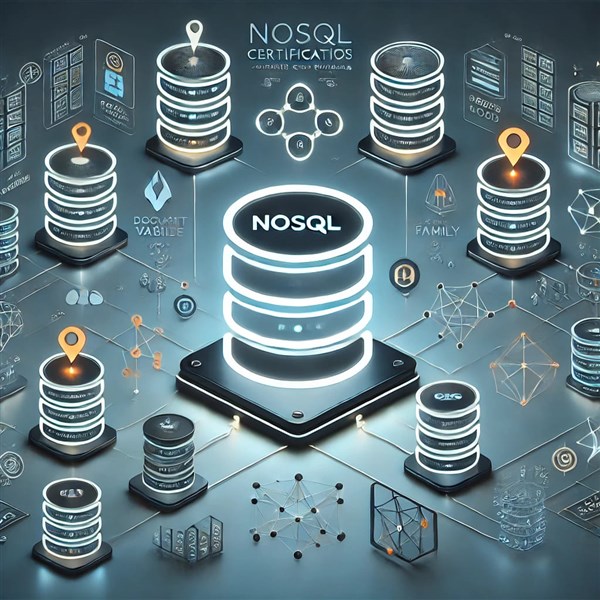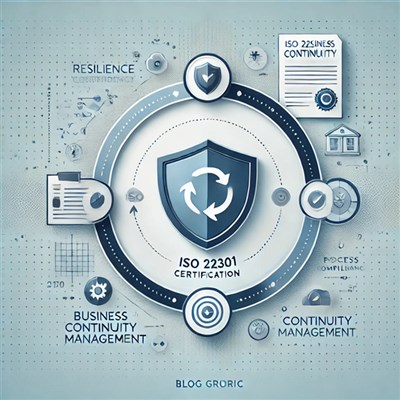
With the increasing adoption of NoSQL databases like MongoDB, Apache Cassandra, Couchbase, Redis, and Amazon DynamoDB, the demand for certified NoSQL professionals is rising. Companies are looking for database administrators (DBAs), data engineers, and developers who understand the scalability, flexibility, and distributed nature of NoSQL systems.
However, passing a NoSQL certification exam is not as simple as it seems. Many candidates fail or score lower due to avoidable mistakes, such as lack of preparation, misunderstanding core concepts, or poor time management.
If you’re preparing for a NoSQL certification exam, this guide will help you avoid common pitfalls and increase your chances of passing on your first attempt.
Common Mistakes to Avoid in NoSQL Certification Exams
1. Not Understanding the Exam Format and Objectives
Mistake:
Many candidates start preparing without knowing the exam structure, topics covered, and passing criteria.
Solution:
✅ Read the official certification guide for your chosen NoSQL database (e.g., MongoDB, Cassandra, or Couchbase).
✅ Understand the exam format—some exams are multiple-choice, while others include hands-on lab tests.
✅ Familiarize yourself with exam weightage—focus on high-priority topics.
💡 Pro Tip: Visit the official certification website and go through the exam blueprint to prioritize your study plan.
2. Memorizing Concepts Instead of Understanding Them
Mistake:
Some candidates rely solely on memorization instead of truly understanding how NoSQL databases work.
Solution:
✅ Focus on real-world applications—understand how NoSQL databases handle scalability, sharding, indexing, and replication.
✅ Practice writing NoSQL queries—knowing the syntax is not enough; understanding how queries perform in different scenarios is key.
✅ Explore real-time use cases—learn how NoSQL databases are used in Big Data, IoT, and Microservices architectures.
💡 Example: Instead of just memorizing the syntax for MongoDB aggregation pipelines, practice building complex queries that filter, transform, and analyze data.
3. Ignoring Hands-On Practice with NoSQL Databases
Mistake:
Many candidates study theory but don’t practice with actual NoSQL databases. Since NoSQL databases differ from traditional SQL databases, hands-on experience is crucial.
Solution:
✅ Set up a local or cloud-based NoSQL database environment (e.g., MongoDB Atlas, Cassandra on AWS, or Couchbase Server).
✅ Work on small projects—try building a document-based or key-value database model.
✅ Use NoSQL commands daily—practice CRUD operations, indexing, and replication setups.
💡 Pro Tip: Use free-tier cloud services like MongoDB Atlas or Amazon DynamoDB Free Tier to get hands-on experience.
4. Not Practicing with NoSQL Query Optimization
Mistake:
Most NoSQL exams include performance-related questions, and candidates often ignore query optimization.
Solution:
✅ Understand indexing strategies—know when to use single-field, compound, and text indexes.
✅ Learn about query profiling tools—MongoDB's explain() method and Cassandra’s Tracing feature help identify slow queries.
✅ Optimize data modeling—apply best practices for schema design to reduce query execution time.
💡 Example: In MongoDB, using covered queries (where the index covers all required fields) can significantly improve performance.
5. Overlooking NoSQL Replication and Sharding Concepts
Mistake:
NoSQL databases use replication and sharding for high availability and scalability, but candidates often neglect these topics.
Solution:
✅ Understand replication mechanisms—learn about primary-secondary replication (MongoDB), quorum-based replication (Cassandra), and XDCR (Couchbase).
✅ Study sharding techniques—know how data is distributed across nodes in sharded clusters.
✅ Practice setting up replica sets and sharded clusters in a NoSQL environment.
💡 Pro Tip: Many NoSQL exams include scenario-based questions on replication failures and shard balancing, so be prepared for troubleshooting scenarios.
6. Not Learning Security Best Practices
Mistake:
Security is a major concern in NoSQL databases, but many candidates skip authentication, authorization, and encryption concepts.
Solution:
✅ Understand access control mechanisms—know how role-based access control (RBAC) works in MongoDB and Couchbase.
✅ Learn encryption methods—study data-at-rest encryption, TLS/SSL for data-in-transit, and secure authentication methods.
✅ Practice securing a NoSQL database instance—enable audit logging, IP whitelisting, and user authentication.
💡 Example: MongoDB supports SCRAM authentication and allows TLS/SSL encryption to secure database connections—know how to configure them.
7. Poor Time Management During the Exam
Mistake:
Many candidates spend too much time on difficult questions, leading to incomplete exams.
Solution:
✅ Practice time management with mock exams—simulate real exam conditions.
✅ Answer easy questions first, then return to difficult ones later.
✅ Don’t spend more than 2 minutes per multiple-choice question.
💡 Pro Tip: For hands-on lab exams, allocate 60-70% of your time for practical tasks and 30-40% for theoretical questions.
8. Ignoring Practice Exams and Mock Tests
Mistake:
Many candidates attempt the exam without practicing with mock tests, resulting in unexpected surprises.
Solution:
✅ Take at least 3-5 full-length practice tests before attempting the real exam.
✅ Analyze weak areas and revise them before the exam.
✅ Use official mock exams from MongoDB University, DataStax (Cassandra), and Couchbase Academy.
💡 Pro Tip: Scoring 80%+ on mock exams means you’re well-prepared for the real test.
Final Thoughts
Passing a NoSQL certification exam requires more than just theoretical knowledge. You need hands-on experience, real-world problem-solving skills, and proper time management. By avoiding the common mistakes mentioned above, you can significantly increase your chances of passing on the first attempt.
Key Takeaways:
✔ Understand the exam structure and objectives before you start preparing.
✔ Don’t rely on memorization—focus on hands-on practice with real NoSQL databases.
✔ Learn query optimization, indexing, replication, and sharding techniques.
✔ Master security best practices to secure NoSQL databases.
✔ Take practice exams and mock tests to measure your preparation level.
💡 Are you preparing for a NoSQL certification exam? Start practicing today with real-world database projects and certification mock tests to ensure success! 🚀
Koenig Solutions is a leading IT training company, offering a range of technology courses. Our NoSQL Training Courses are designed by experts in the field and are aimed at providing candidates with in-depth knowledge and practical experience. Enroll in our courses to give your IT career a boost and stay ahead in the competitive tech world.







COMMENT